YK Pao School held the Global Education Forum from March 28-29 for an audience of education luminaries, officials, parents and teachers. The guests attending the forum included leaders from the Chinese People's Political Consultative Conference, the Shanghai Municipal Education Commission, the Municipal Women's Federation, the Communist Youth League Committee, the United Front Work Department, the Changning District Education Bureau, the Songjiang District Education Bureau, the Shanghai Song Qingling Association and the Shanghai Education Society. Other attendees included academic luminaries from home and abroad, leaders from partner institutions, Pao School co-founder, governors, mentors, school leadership and many teacher and parent representatives.
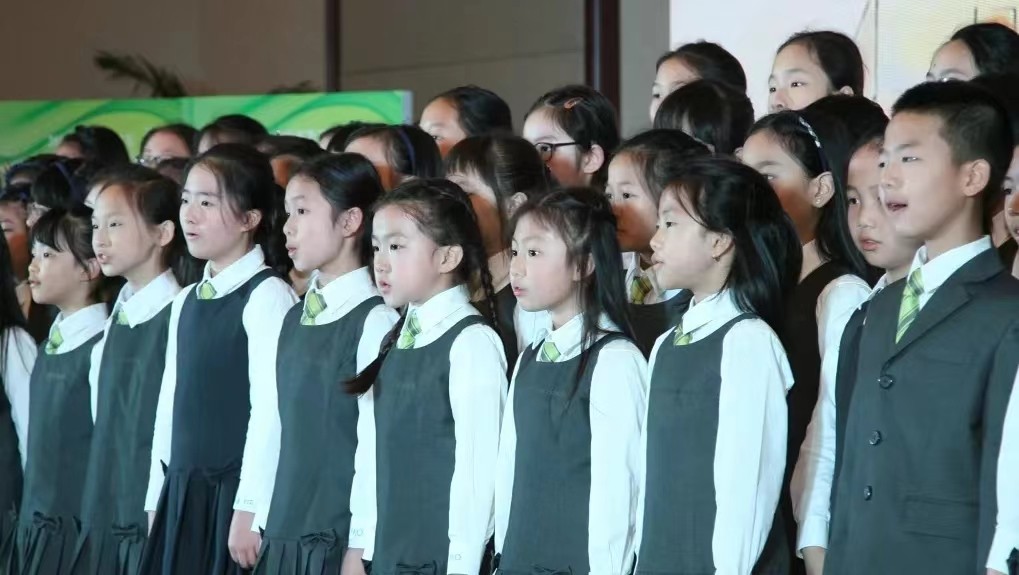
Photo: Pao School's Primary School choir welcomes guests with their melodious singing
The theme of the forum is "Creating a New Chinese Education Model" with three main topics: teaching innovation, character education and educational leadership development. This year’s forum features many notable keynote speeches and workshops involving leading experts from China and overseas, including many involved in international schools and bilingual schools.
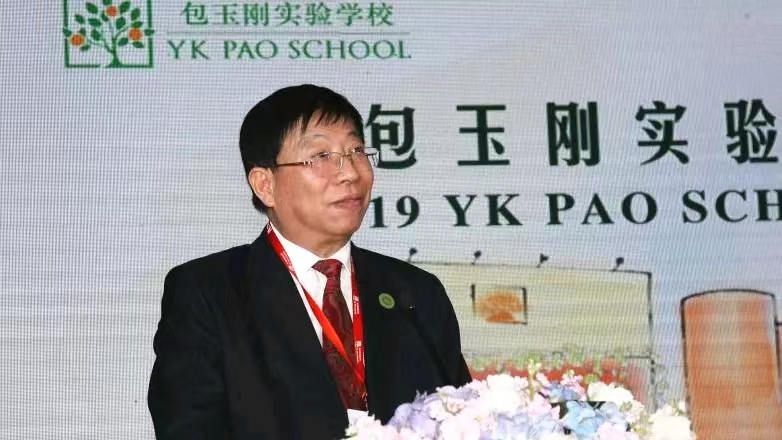
On the first day of the forum, Pao School President Wu Zijian, gave a welcome speech in which he explained the purpose and significance of the forum. President Wu noted that Chinese education faces certain challenges amidst the internationalization of education in the modern era. It is essential to cultivate young minds who both embrace their Chinese cultural heritage and have a broad international.
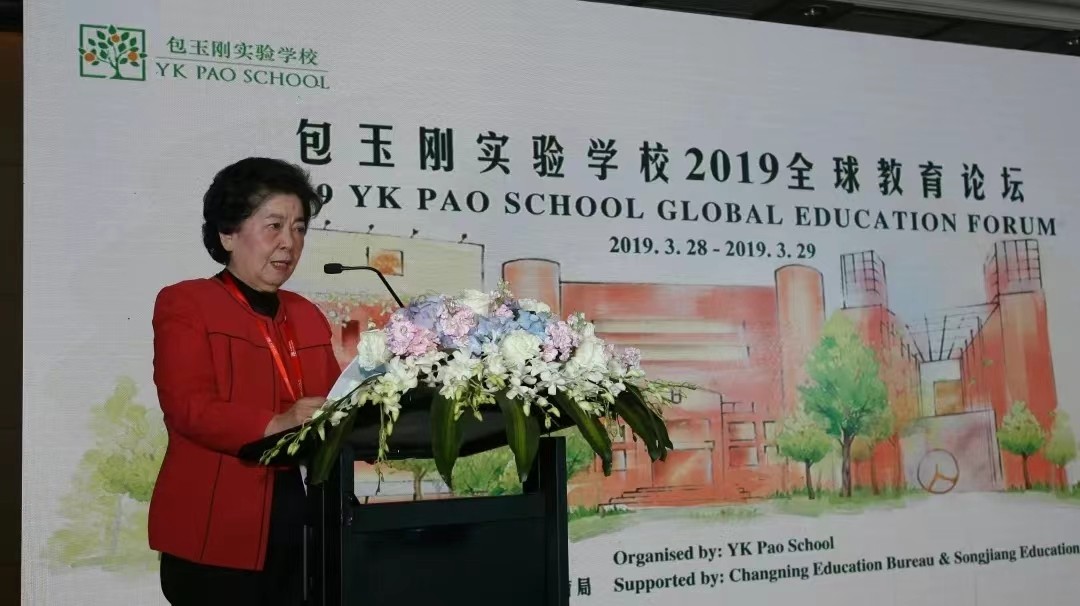
YK Pao's lifelong advocacy of education, which has been so beneficial to China, is an inspiration to us all. From YK Pao, we can learn much about how to improve ourselves and think of learning as an ongoing process that spans our entire lives. Our Global Education Forum, which has been held for two years in a row now, features many outstanding keynote speeches, workshops and teaching seminars, It showcases Pao School's bilingual pedagogy and channels the spirit of YK Pao. We hope that all participants can carry on YK Pao's educational ethos in the years ahead.
------Tan Fuyun, Co-founder of YK Pao School
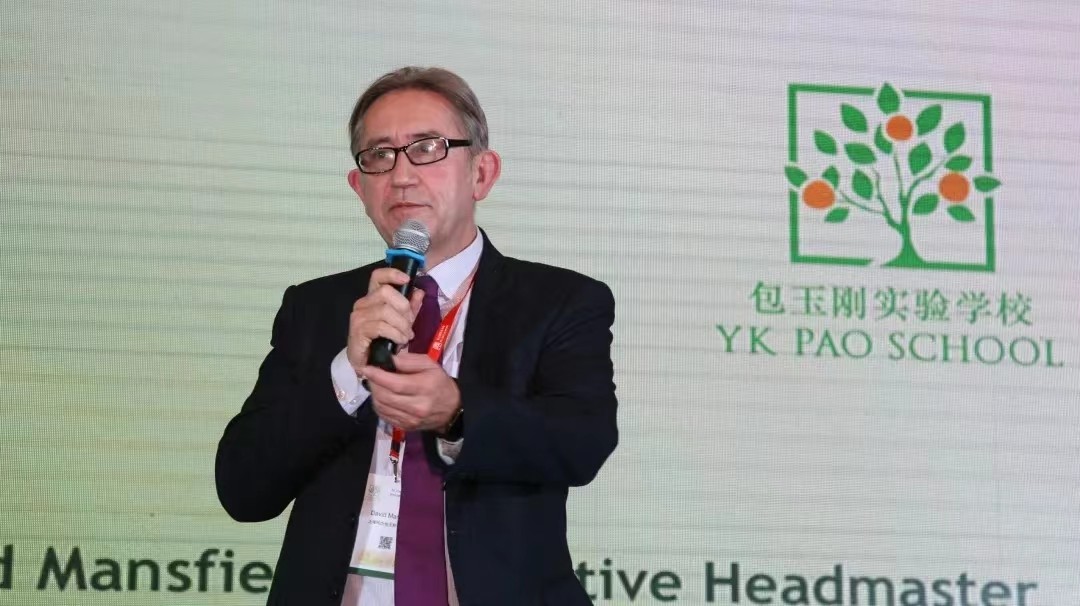
When this school was set up by the founders in 2007, it was deliberately and consciously a pioneering school and remains that way. When we talk about “A School for tomorrow’s China; Education for tomorrow’s world”, we are really talking about pathway into the future. We never finish our work on character development, we never completely master the art of leadership, we never fully comprehend what it means to be teaching the best way. It is an ongoing journey. We need to have dialogues and this forum is where the dialog taking place.
------David Mansfield
YK Pao School Executive Headmaster
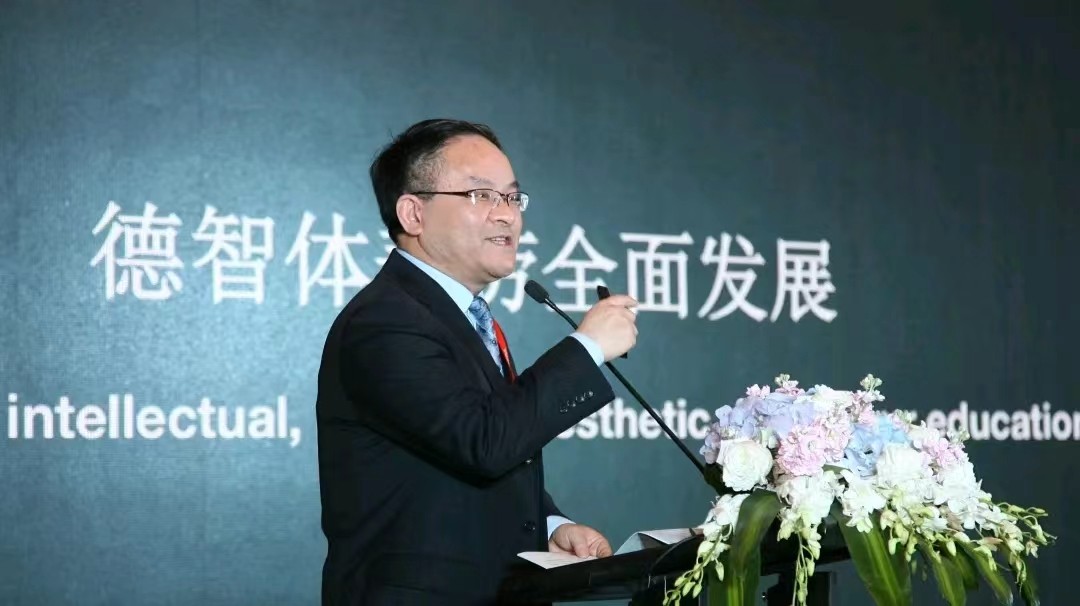
Minjing Ni, Deputy Director of the Shanghai Municipal Education Commission, first congratulated Pao School on successfully holding the second Global Education Forum. He then delivered a keynote speech entitled "Several Ways to Implement the Comprehensive Development of Moral, Intellectual, Physical and Artistic Work", explaining how to start from the two aspects of educational values and professional skills, to achieve full ideological unity and social preparation, and thus to implement morality.
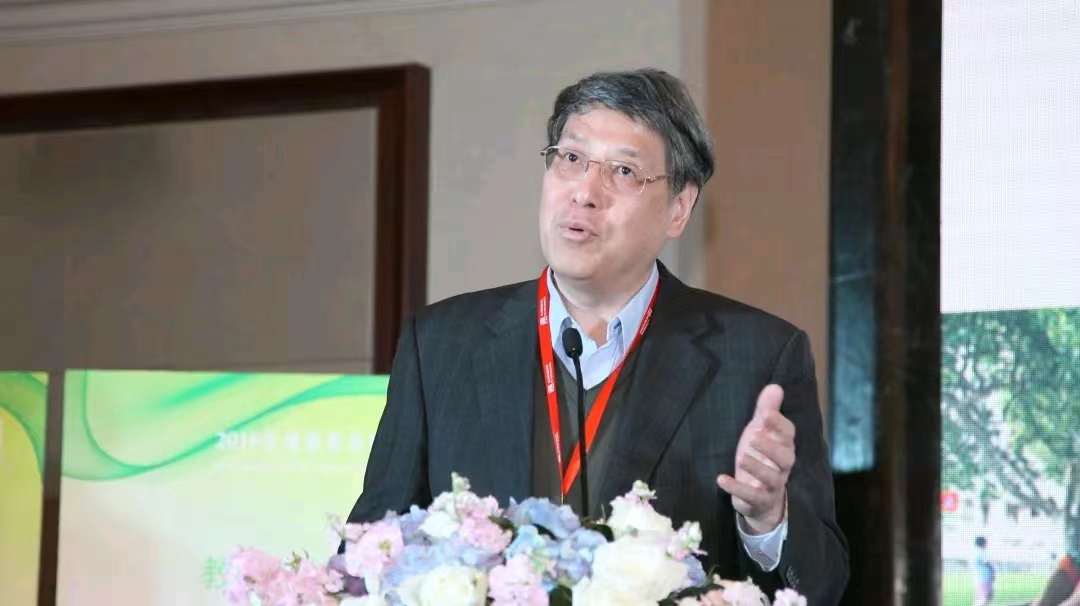
Professor Yu Lizhong, Chancellor of NYU Shanghai, delivered a keynote speech entitled "Global Education:Exploring A World of New Possibilities," explaining how China can cultivate a global perspective in terms of educational concepts, changes in learning methods, and innovative training models, in order to cultivate innovative international talents.
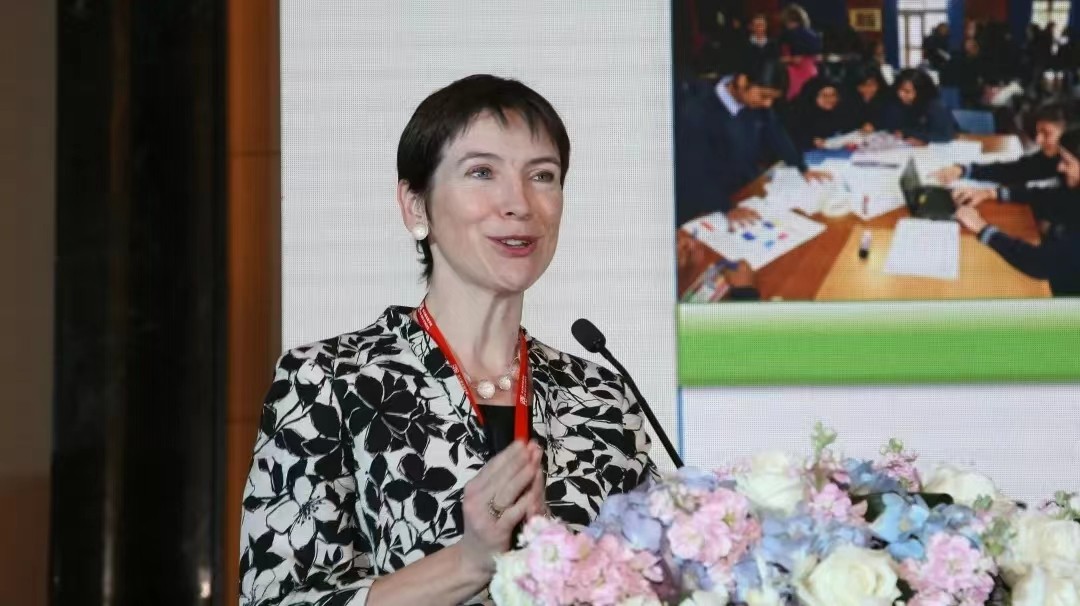
In her speech, author and education consultant C. J. Simister introduced her Future-Smart® approach, looking at how giving more attention to developing intellectual character offers education leaders across the sector a simple, tangible and helpful structure for improving the life chances of the young people in their care.
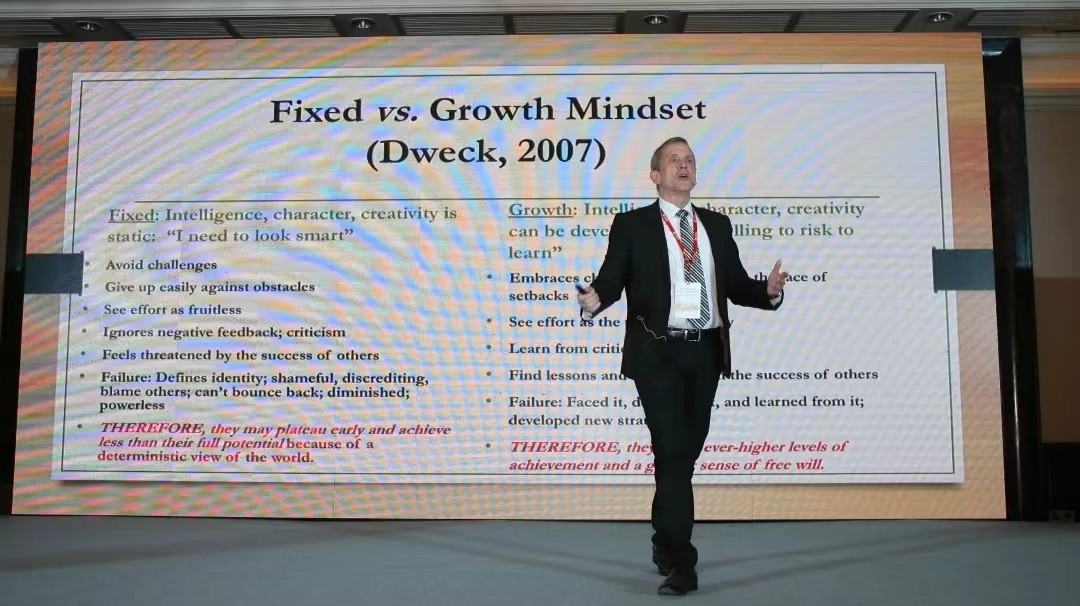
Harry Brown, principal of Renaissance College Hong Kong, explained Dr. Helen Street's model of contextual wellbeing in his speech "The Survival of the Kindest: Contextual Wellbeing in Schools." He discussed how this model embodies the culture of Renaissance College, an IB World School of 2,100 students, and how it is essential to make the happiness of faculty and students a cornerstone of school culture.
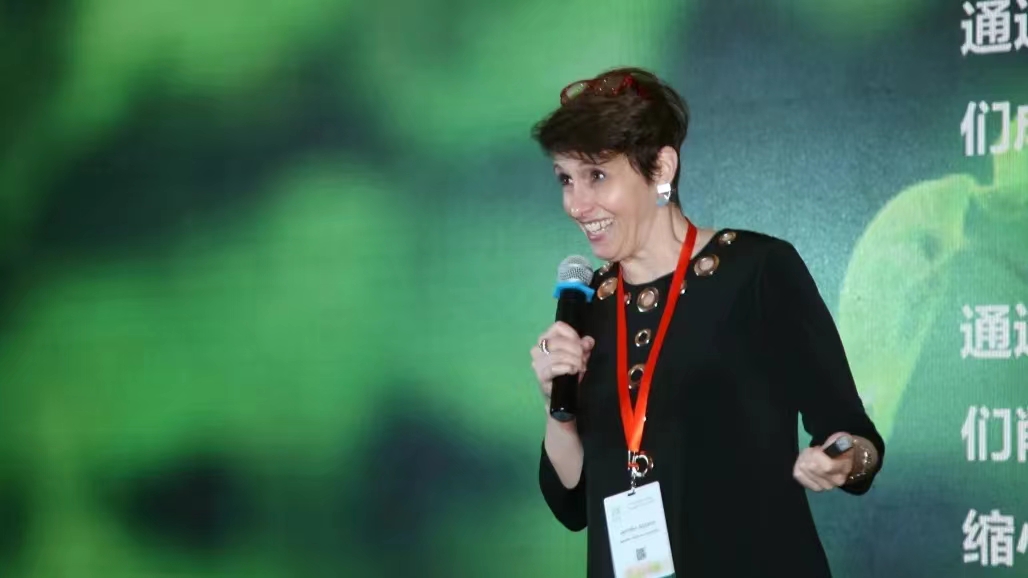
In her speech, "Building Social Capital: One Key Driver in Creating Effective Schools," Jennifer Abrams provided insight into key cognitive, social and psychological mindsets and skills that help educators communicate more collaboratively, and more productively, in order to better support students.

Welcome remarks by Mark Bishop, High School Principal and Head of Songjiang Campus
On the second day of the forum, educational luminaries gave keynote speeches and held workshops on 40 different topics on Pao School's Songjiang campus, during which they shared their knowledge of best practices for curriculum planning and teaching methods.The educators hailed from a diverse range of leading schools, among them Hong Kong Renaissance College, Hong Kong's ISF Academy, UWC Changshu, Suzhou Singapore International School, Wellington College (China), Shanghai American School, Shanghai United International School, Nishimachi International School and Canadian Academy in Kobe. The subjects they covered included the following:
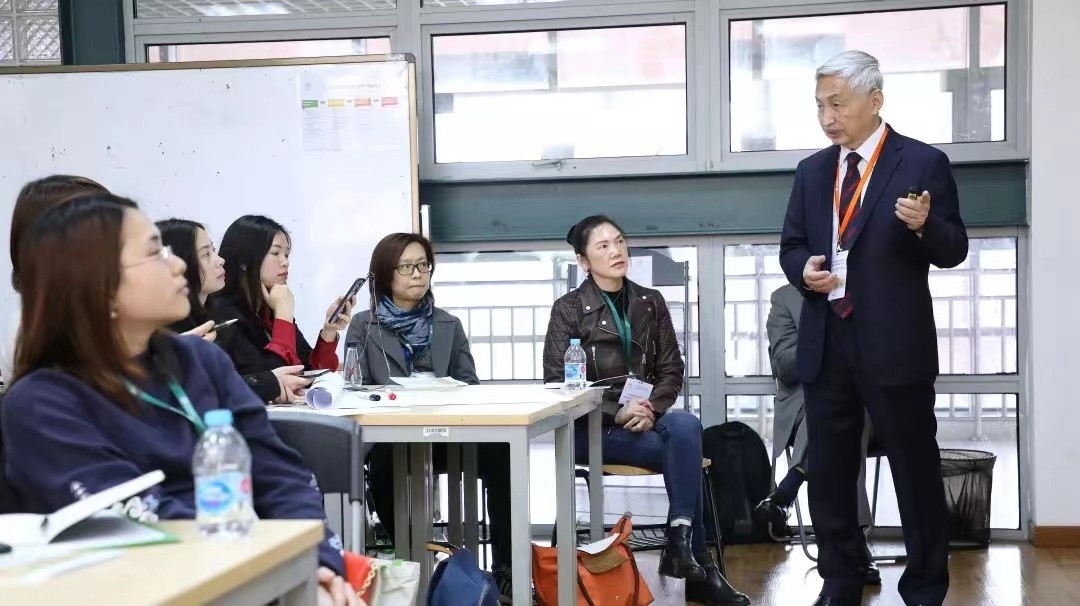
Mentor Group's Role in Teachers' Development
by Matthew WU
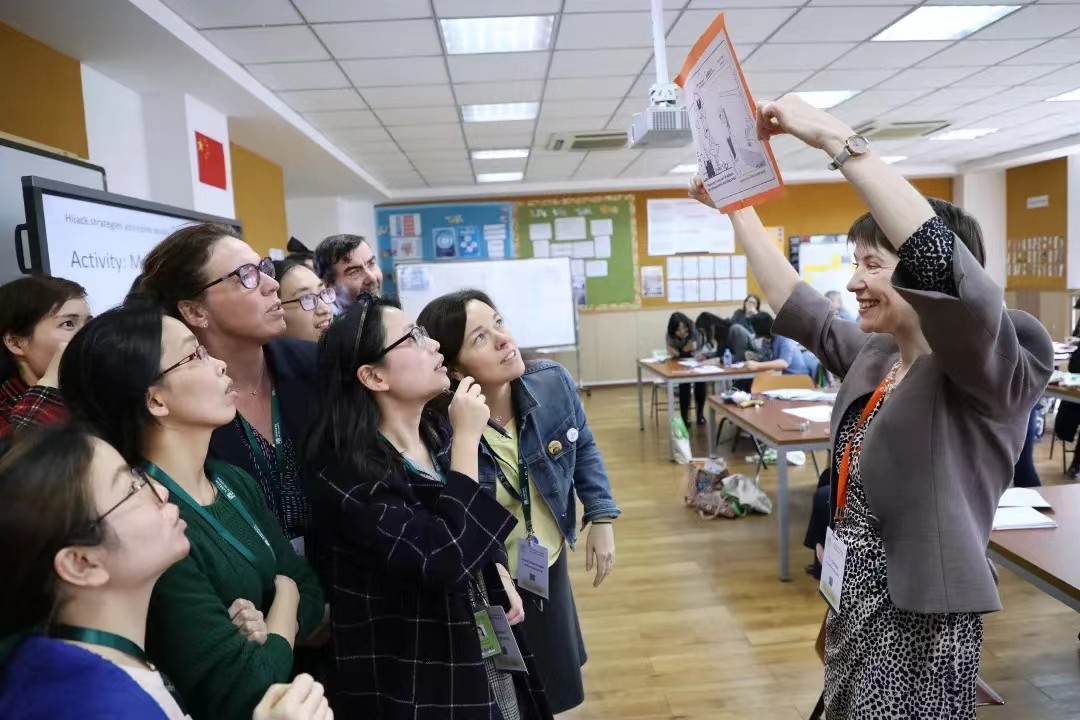
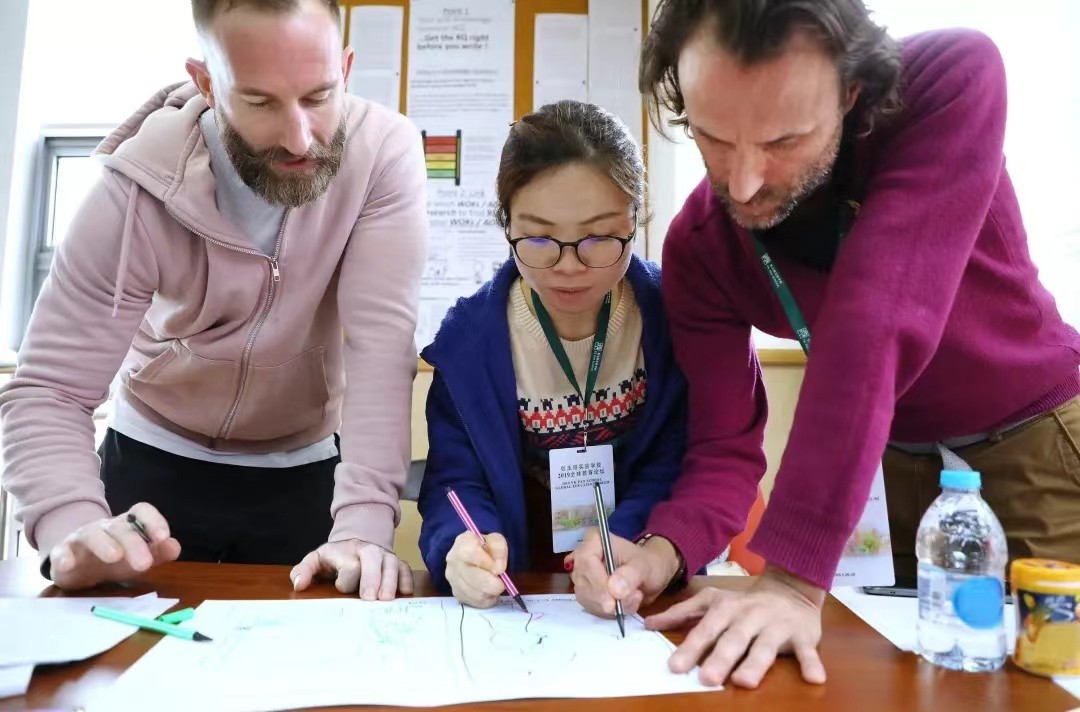
Workshop
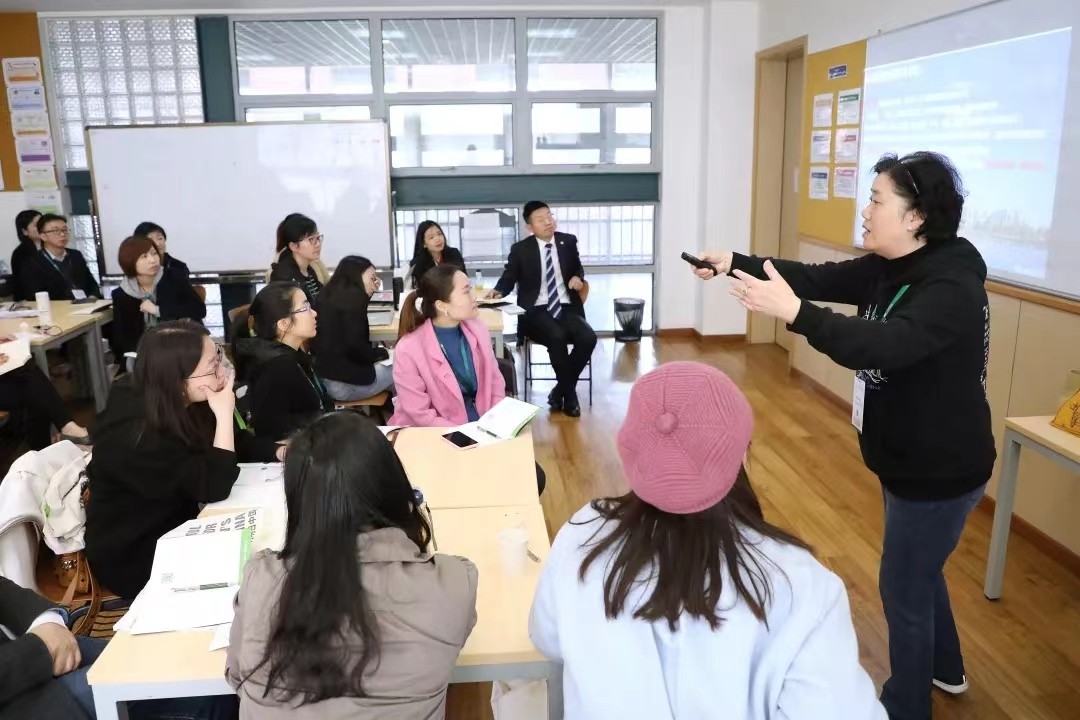
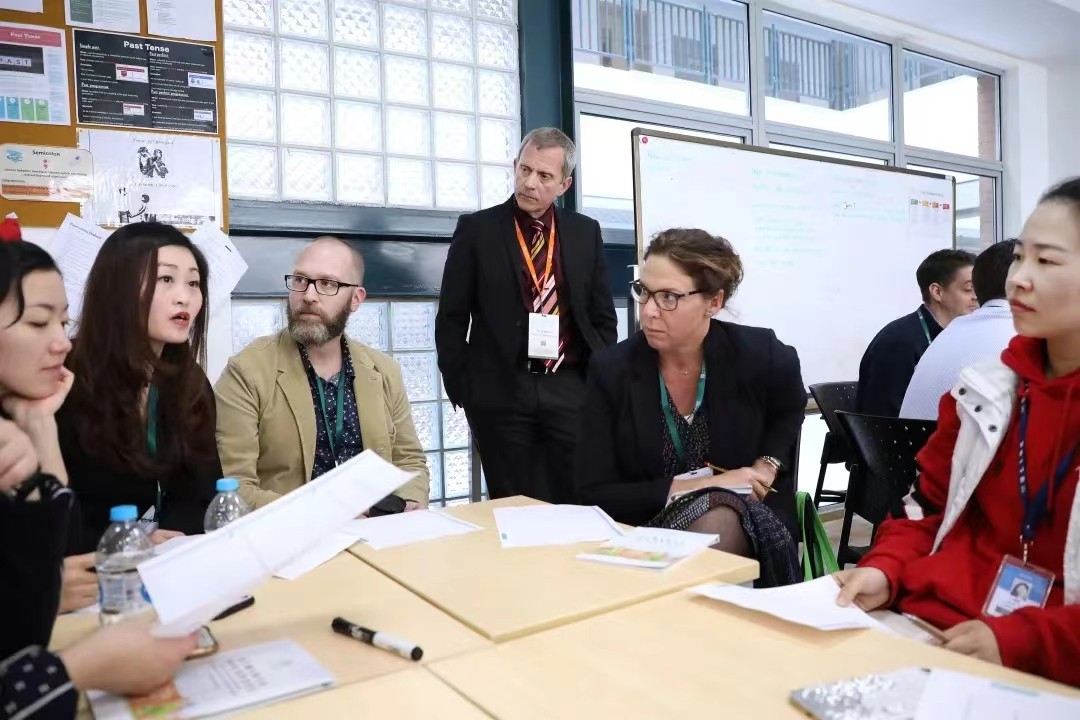
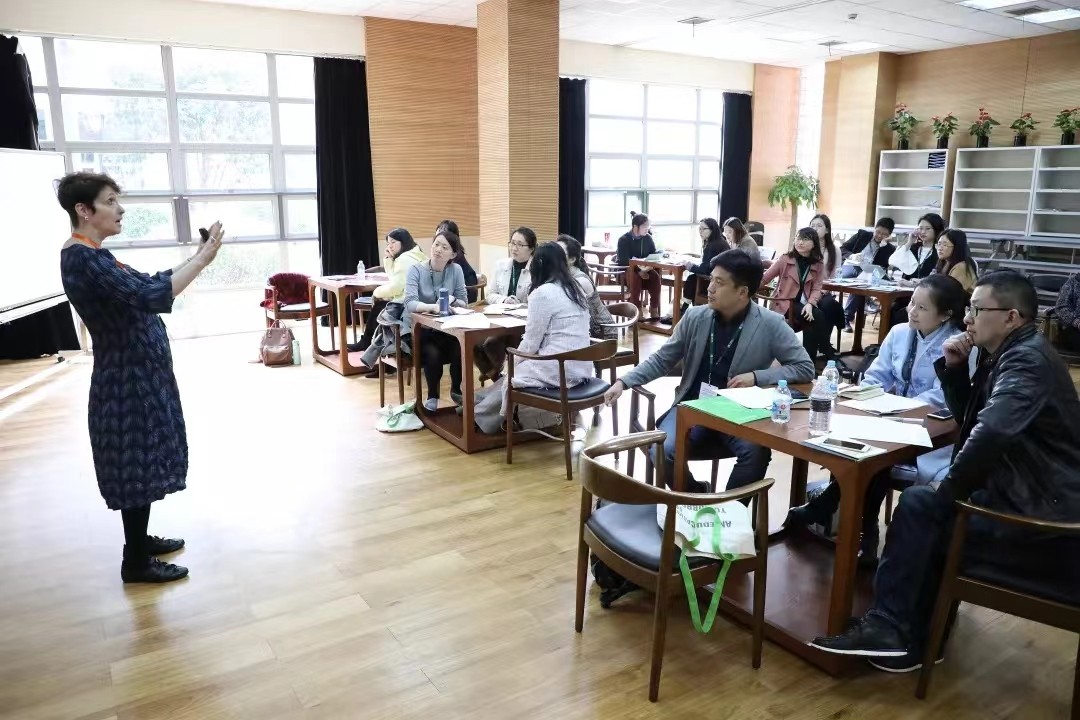
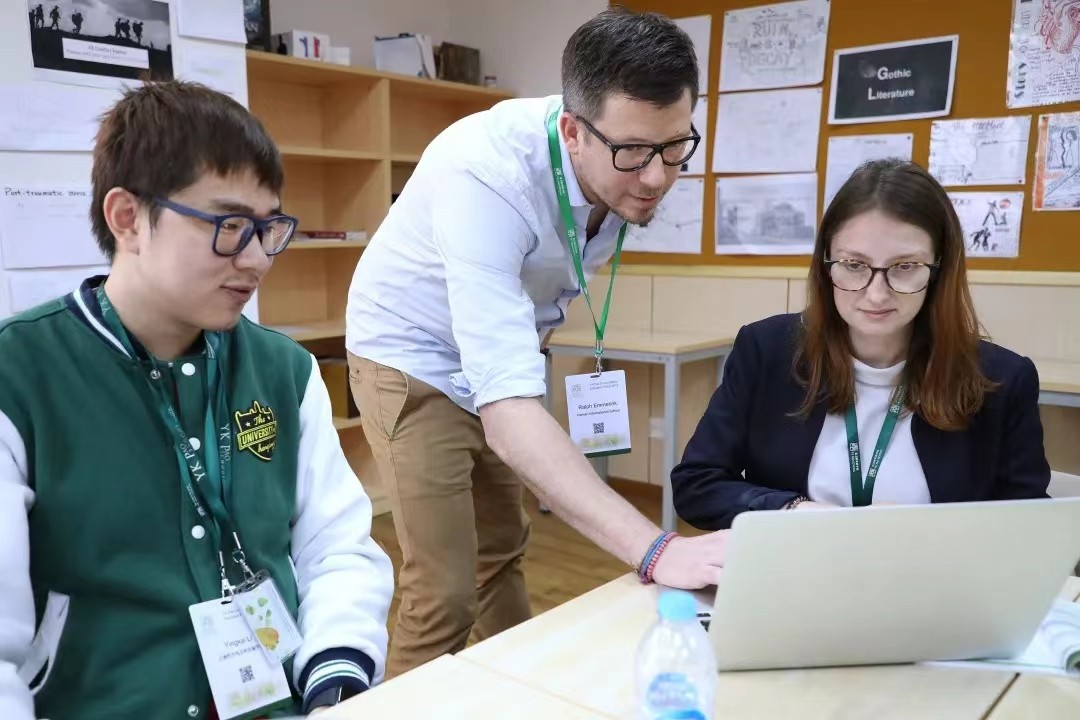
The forum also included some sharing of pragmatic best practices from Pao School’s leadership team and teachers:
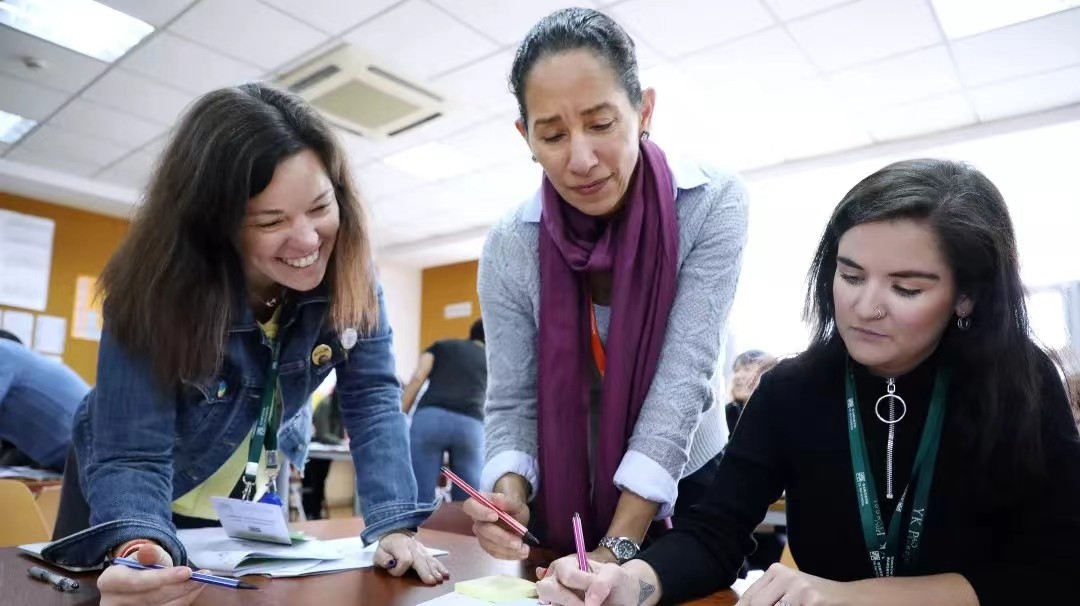
Facilitating High Quality Lesson Observation Conversations
by Siobhain Allum and Sara Roesler
Caroline Xu, Deputy Head of Academics at YK Pao School, gave a speech entitled "What, So What, Now What: Si Mian Ba Fang (SMBF) and Professional Learning Centre - an Approach to Improve Teaching and Learning," during which she discussed how Pao School empowered both Chinese and international students’ learning through careful curriculum plan, well-designed teaching and learning pedagogy, and a professional support system.
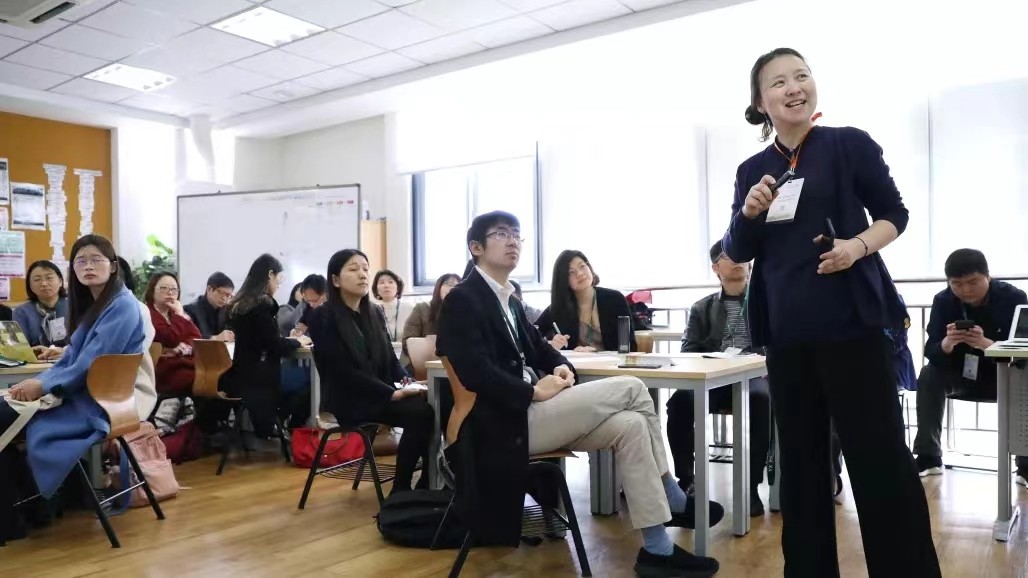
What, So What, Now What : Si Mian Ba Fang (SMBF) and Professional Learning Centre -
an Approach to Improve Teaching and Learning by Caroline XU
Working through the necessary "what" is the appropriate pedagogy for Pao School students to enjoy and engage in learning. Equally important are the "so what?" process of inquiry and reflection of our current practices, and mapping out the "now what?" responses and action points. Thus, through this approach, a "balanced" Si Mian Ba Fang (SMBF) framework was developed, implemented across our three campuses, and strengthened by “looking for learning” open-classroom walk-throughs. Currently, SBMF is being linked to Professional Learning Centre coach programs, learning course settings as well as “teaching to excellence” standards settings.
In the future, Pao School hopes to continue providing such a comprehensive platform for dialogue and best practice sharing to educators. Such forums allow educators to speak openly about the best ways to improve the educational experience for all stakeholders in today's world, and develop Chinese blend of international education.